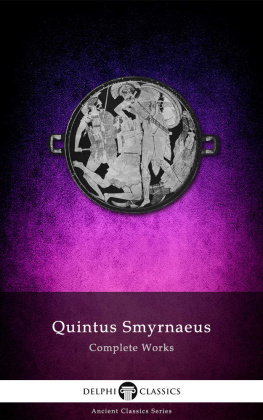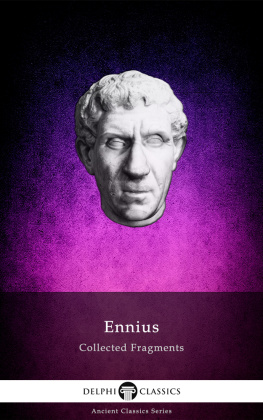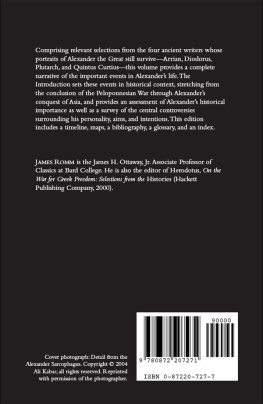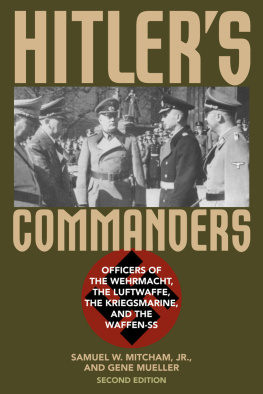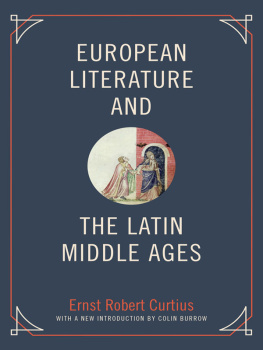Quintus Curtius - Lives of the Great Commanders
Here you can read online Quintus Curtius - Lives of the Great Commanders full text of the book (entire story) in english for free. Download pdf and epub, get meaning, cover and reviews about this ebook. genre: Science. Description of the work, (preface) as well as reviews are available. Best literature library LitArk.com created for fans of good reading and offers a wide selection of genres:
Romance novel
Science fiction
Adventure
Detective
Science
History
Home and family
Prose
Art
Politics
Computer
Non-fiction
Religion
Business
Children
Humor
Choose a favorite category and find really read worthwhile books. Enjoy immersion in the world of imagination, feel the emotions of the characters or learn something new for yourself, make an fascinating discovery.
- Book:Lives of the Great Commanders
- Author:
- Genre:
- Rating:4 / 5
- Favourites:Add to favourites
- Your mark:
- 80
- 1
- 2
- 3
- 4
- 5
Lives of the Great Commanders: summary, description and annotation
We offer to read an annotation, description, summary or preface (depends on what the author of the book "Lives of the Great Commanders" wrote himself). If you haven't found the necessary information about the book — write in the comments, we will try to find it.
Lives of the Great Commanders — read online for free the complete book (whole text) full work
Below is the text of the book, divided by pages. System saving the place of the last page read, allows you to conveniently read the book "Lives of the Great Commanders" online for free, without having to search again every time where you left off. Put a bookmark, and you can go to the page where you finished reading at any time.
Font size:
Interval:
Bookmark:
LIVES OF THE
GREAT COMMANDERS
By
Cornelius Nepos
Translated With Notes And Illustrations
By
Quintus Curtius
Amazon Kindle Edition
Lives Of The Great Commanders
Copyright 2019 by Quintus Curtius
All rights reserved.
This book and any portion thereof may not be reproduced without the written permission of the publisher, except for the use of brief quotations for literary reviews.
Cover art by James Seehafer
Printed in Charleston, South Carolina, United States of America
Published by Fortress of the Mind Publications
www.qcurtius.com
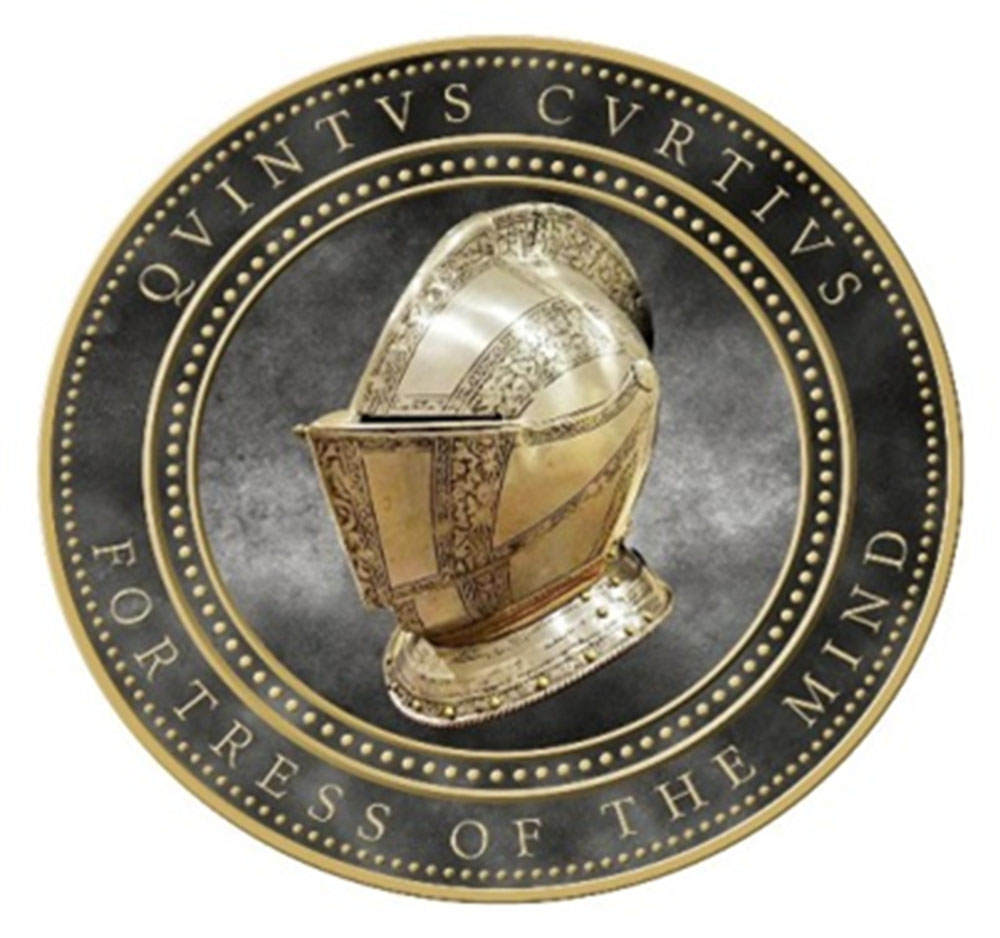
ISBN: 978-1-693-91866-7
Books by Quintus Curtius
Translations:
On Moral Ends
On Duties
Sallust: Conspiracy of Catiline and War of Jugurtha
Stoic Paradoxes
Essay Collections:
Thirty-Seven
Pantheon
Pathways
Contributing Author :
The Plutocratic Insurgency Reader
About the Translator
Quintus Curtius is the pen name of writer and translator George Thomas. He graduated from MIT in 1990 and served on active duty for a number of years as a US Marine Corps officer, with deployed service worldwide. After leaving active duty, he enrolled in law school and began to practice law after graduating in 1998. He resides in Kansas City and travels frequently. He can be found at www.qcurtius.com .

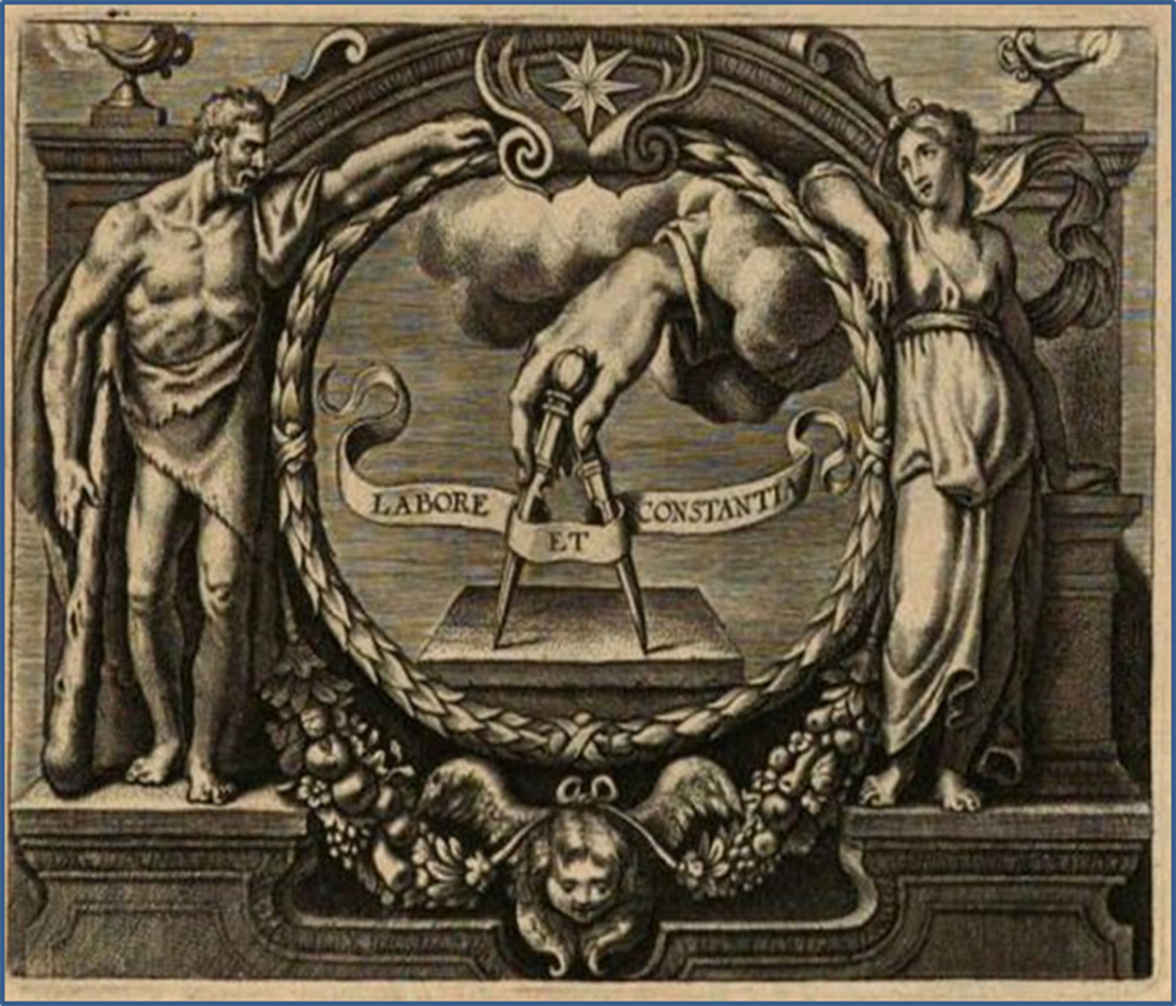
Whatever withdraws us from the power of our senses, whatever makes the past, the distant, or the future predominate over the present, advances us in the dignity of thinking beings. Far from me, and from my friends, be such frigid philosophy as may conduct us indifferent and unmoved over any ground which has been dignified by wisdom, bravery, or virtue.
Dr. Samuel Johnson
(From Boswells Tour of the Hebrides )
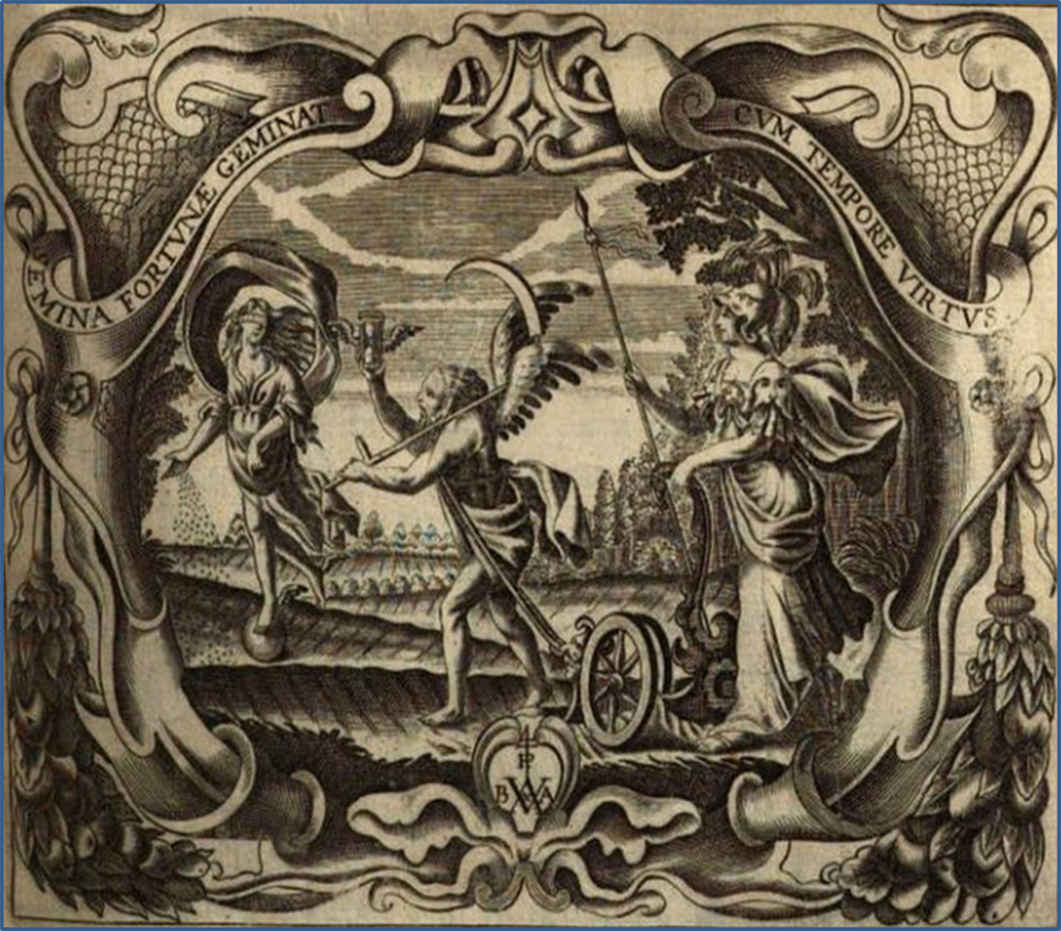
Table of Contents
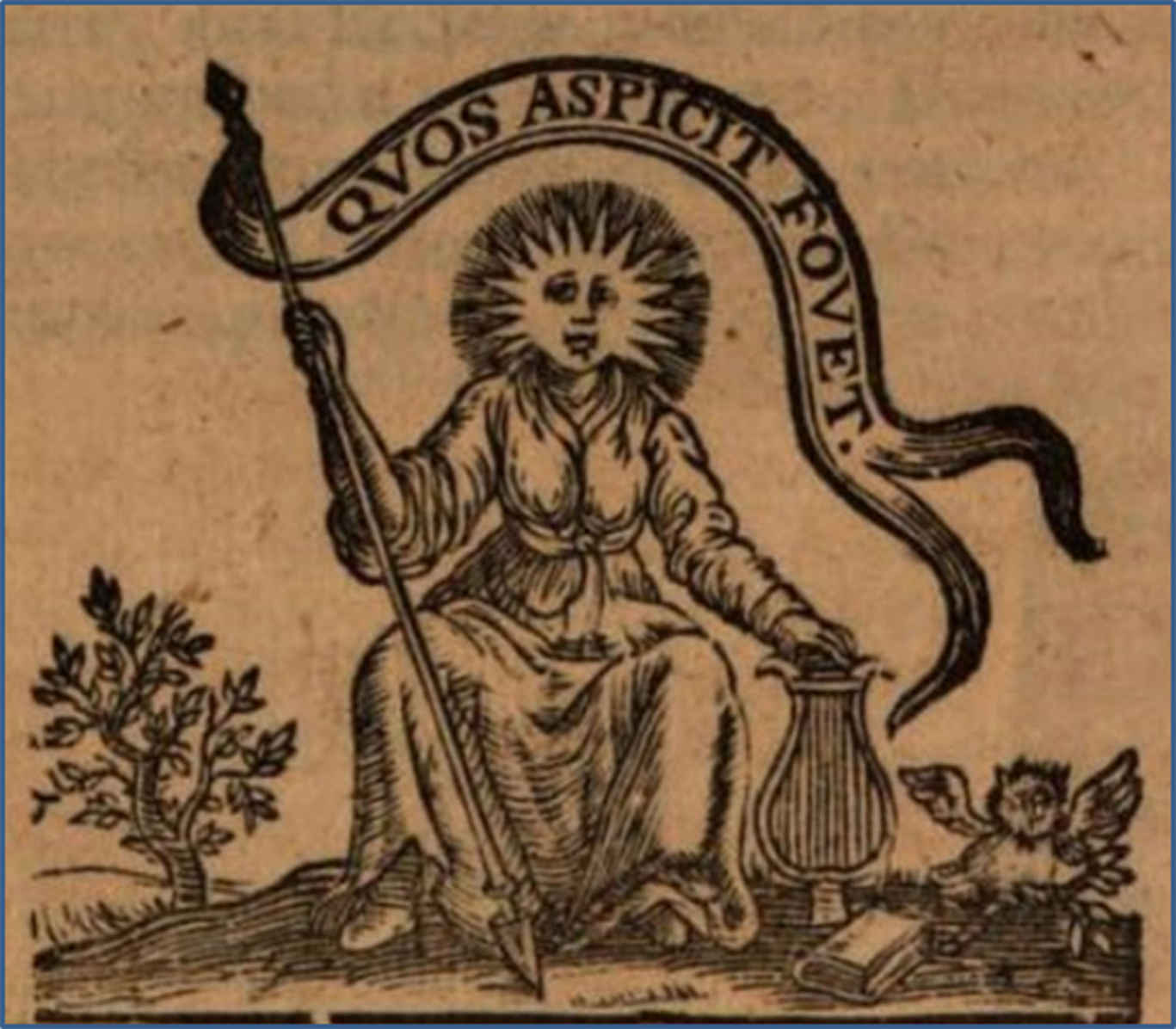
Foreword
We are told that the philosopher Aristippus was once asked how the educated differ from the uneducated. Exactly, he replied, as horses that have been trained differ from those that are untrained.
The emphasis on character and moral development is a thread running through much of classical and Renaissance writing. The ancient historians, both Greek and Roman, are filled with moral admonitions on the role of Fortune in human affairs, and classical drama unceasingly reminds us of hubriss ruinous consequences. Plutarch saw character as the primary determinant of ones fate, an idea that dates back at least to Heraclitus; his primary concern, he tells his readers, is to explore the personalities of his subjects, not to write history.
This theme of character appears in other fields of discipline as well. Quintilian, that prince of rhetoricians, considered good character a requirement for public speaking, and devotes a special section in his treatise on the subject. Even the physician Galen was mindful of the importance of character; in his treatise The Best Doctor Is Also A Philosopher , he makes it clear that it is vital to the practice of medicine:
For if in order to discover the nature of the body, the differentiae of diseases and the indications for cures, it is appropriate for him to be practiced in logic, and to stay diligent in the practice of these things, to despise money, and to exercise self-control.
This emphasis on character and moral training was renewed and strengthened during the Renaissance. Paolo Vergerios 1402 educational treatise The Character and Studies Befitting a Free-Born Youth had this to say on the importance of moral instruction:
The youth should always be kept occupied with some honorable physical or mental activity, for leisure makes young people inclined to lust and every intemperanceBut not only is leisure very dangerous to them, but also solitude, which caresses a weak mind with constant thoughts about such things and prevents it from finding diversion elsewhereThey should only be entrusted to those whose character and entire life has been thoroughly scrutinized, who do not present an example leading to sin, but possess the authority to deter them from it.
The humanist Franciscus Barbarus, in a 1417 letter to Poggio Bracciolini, states that When the Athenians consulted Apolloin their view, the wisest of the godsthey were told that the very best citizens would be those who instructed their children on what was best and most beautiful. Comments like this were not disposable cant. They are evidence of a value system that was taken very seriously, and that illuminated every aspect of educational life.
These educational currents persisted for many centuries. Cornelius Neposs Lives of the Great Commanders occupied a niche not only as a textbook for Latin language study, but also as a tool for moral and character instruction. As some of the illustrations in this book demonstrate, Nepos appeared in countless school editions through the 17 th , 18 th , and 19 th centuries. In clear, unadorned language, his short biographical sketches helped readers understand what qualities allowed his subjects to rise to distinction, and what defects eventually caused their downfalls. Moral truths were thereby revealed.
All of this changed in the twentieth century. Dizzying technological transformations, catastrophic world wars, and profound social upheavals all shook the collective faith in traditional educational models. Fashions in literature and art emphasized the dynamism and vigor of the Age of the Machine. New priorities came to replace the old, and, with an understandable sense of exhilaration, instructors sought to free themselves from the tyranny of the past. Pedagogy was not immune to these trends: it sought new stimuli, new models, and new sustaining rationales. It is right that such things should happen now and then; periodic revolt refreshes and renews a healthy societys circulatory systems, and prevents the ossification of thought and training.
But as prosperity, money, and the blessings of peace multiplied, the importance of character and moral development began, slowly but steadily, to slip from the collective memory. Nepos, who had once been universally known, became by the late twentieth century universally unknown. Individualism, it appeared, began to take precedence over discipline and the development of sound character. Flushed with the leisure and convenience gifted by modern consumer society, we began to confuse liberty with irresponsible license, and indulged every desire by calling it a right; we concealed personal and institutional debasement behind a protective barrier of money; and a thousand new technological distractions shut our ears to the ancient admonitions against hubris, arrogance, and folly.
There is now a sense that the pendulum has swung too far in one direction, and that we must, to some degree at least, revisit the ancient wisdom. As modern life continues to present us with a myriad of challenges in social organization, leadership, economics, warfare, environmental management, education, and health, the study of character and virtue has never been so necessary. It has been neglected for too long. Wealth, information, and technology are of little use if not guided by disciplined minds imbued with ethical principles.
Next pageFont size:
Interval:
Bookmark:
Similar books «Lives of the Great Commanders»
Look at similar books to Lives of the Great Commanders. We have selected literature similar in name and meaning in the hope of providing readers with more options to find new, interesting, not yet read works.
Discussion, reviews of the book Lives of the Great Commanders and just readers' own opinions. Leave your comments, write what you think about the work, its meaning or the main characters. Specify what exactly you liked and what you didn't like, and why you think so.

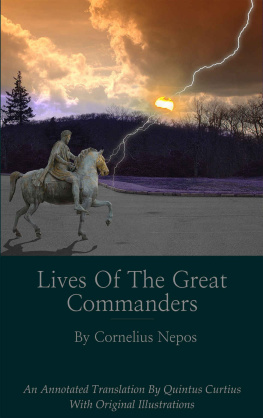

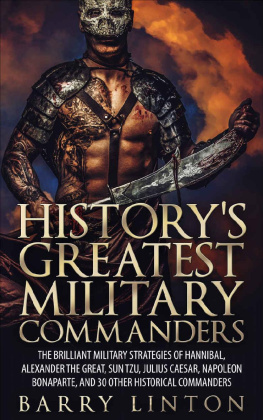
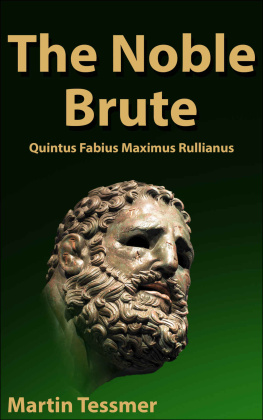
![Christopher R. Gabel - Great Commanders [Illustrated Edition]](/uploads/posts/book/291126/thumbs/christopher-r-gabel-great-commanders.jpg)
